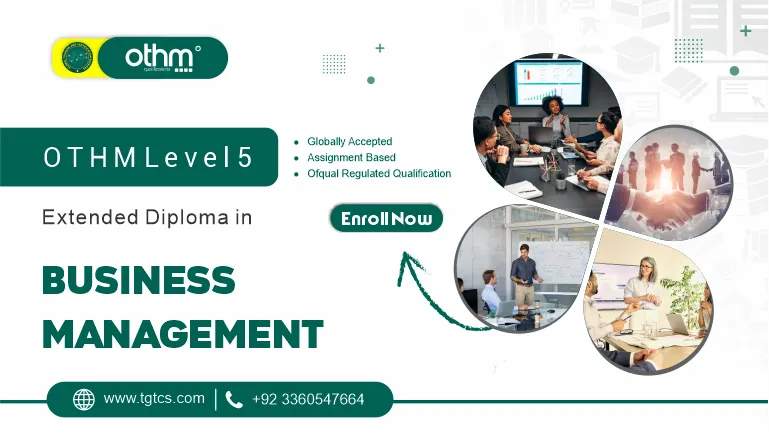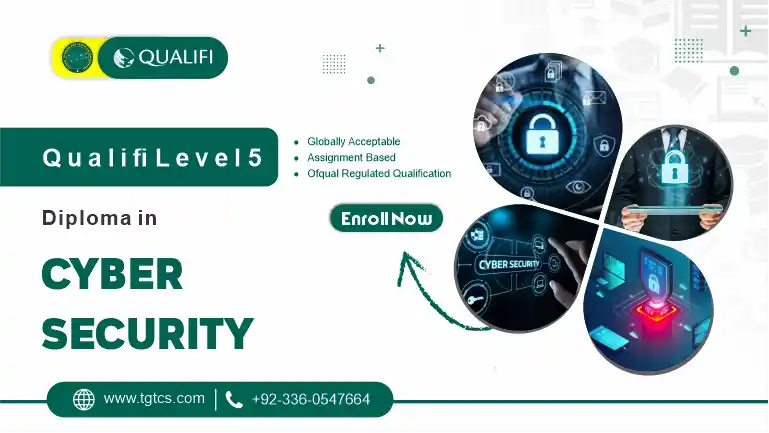ICTQual Level 6 Diploma in Electrical Engineering 360 Credits – Three Years
The ICTQual Level 6 Diploma in Electrical Engineering (360 Credits – Three Years) could be your gateway to a successful career in the fast-evolving electrical engineering sector. This comprehensive course equips you with advanced technical knowledge and practical skills, preparing you for high-level positions in industries such as energy, telecommunications, manufacturing, and more.
The ICTQual Level 6 Diploma in Electrical Engineering is an advanced qualification designed for individuals who want to gain expert knowledge and technical expertise in electrical engineering. Over three years and 360 credits, this course covers key areas such as electrical circuit design, power systems, renewable energy, control systems, and more.
The ICTQual Level 6 Diploma in Electrical Engineering is an excellent choice for those looking to build a career in the dynamic field of electrical engineering. With a strong emphasis on both theory and practical skills, this qualification provides the expertise needed to succeed in various industries while also opening doors to professional recognition and career advancement.
The Global Training and Certification Services (TGTCS) is Directly Approved Training Centre of ICTQual
The ICTQual Level 6 Diploma in Electrical Engineering (360 Credits – Three Years) is an advanced qualification designed to provide students with comprehensive knowledge and practical skills in electrical engineering. Over three years, students will study essential topics such as electrical circuit design, power systems, renewable energy, control systems, and more. This course prepares learners for high-level roles in various sectors, including energy, telecommunications, and manufacturing, and serves as a pathway to professional certifications like Chartered Engineer (CEng).
With a strong focus on both theoretical concepts and real-world applications, students will gain hands-on experience through labs, projects, and industry-relevant assignments. The diploma is accredited by recognized industry bodies, ensuring that graduates are well-prepared for successful careers in electrical engineering. Flexible study options, including full-time and part-time formats, make it accessible for individuals looking to balance their education with personal or professional commitments.
Overall, the ICTQual Level 6 Diploma in Electrical Engineering is ideal for those with a passion for technology and innovation, offering excellent career prospects and a solid foundation for further professional development in the engineering field.
Mandatory Units
The Units of Level 6 Diploma in Electrical Engineering 360 Credits – Three Years as :
Year 1: Foundational Knowledge
- Engineering Mathematics I
- Fundamentals of Electrical Circuits
- Principles of Electronics
- Digital Logic Design
- Electrical Machines and Transformers
- Introduction to Control Systems
- Engineering Drawing and CAD
- Introduction to Microprocessors and Microcontrollers
- Electrical Measurement and Instrumentation
- Physics for Engineers
- Health and Safety in Engineering
- Sustainability in Electrical Engineering
Year 2: Intermediate Proficiency
- Engineering Mathematics II
- Power Systems Analysis
- Analog Electronics
- Embedded Systems and Applications
- Electrical Energy Systems
- Signals and Systems
- Principles of Automation and Robotics
- Industrial Electronics
- Communication Systems Engineering
- Renewable Energy Technologies
- Electrical Project Management
- Technical Report Writing and Research Methods
Year 3: Advanced Specialization and Application
- Advanced Power Electronics
- Smart Grid Technology
- Electrical Machine Design
- Advanced Control Systems
- High Voltage Engineering
- Instrumentation and Process Control
- Advanced Embedded Systems
- Energy Storage and Conversion Systems
- Wireless and Optical Communication
- Electromagnetic Compatibility
- Capstone Project
- Professional Development and Ethical Practices
Year 1: Foundational Knowledge
- Engineering Mathematics I
Develop a solid understanding of fundamental mathematical principles and techniques essential for electrical engineering, including algebra, calculus, and differential equations. - Fundamentals of Electrical Circuits
Learn to analyze and design basic electrical circuits, applying key concepts such as Ohm’s Law, Kirchhoff’s Laws, and techniques for calculating voltage, current, and resistance. - Principles of Electronics
Understand the core principles of electronics, including semiconductor physics, diodes, transistors, and their real-world applications in various electrical devices. - Digital Logic Design
Apply digital logic principles to design and implement combinational and sequential circuits using logic gates and flip-flops. - Electrical Machines and Transformers
Explain the operation of electrical machines, including motors, generators, and transformers, and analyze their performance across different engineering applications. - Introduction to Control Systems
Gain an understanding of basic control systems, including feedback loops and controllers, and their applications in regulating electrical systems. - Engineering Drawing and CAD
Learn to create and interpret engineering drawings using both traditional methods and Computer-Aided Design (CAD) tools, demonstrating proficiency in design communication. - Introduction to Microprocessors and Microcontrollers
Study the basics of microprocessor and microcontroller systems, focusing on architecture, programming, and interfacing with external components. - Electrical Measurement and Instrumentation
Master the use of electrical measurement tools and instruments to accurately measure electrical quantities such as voltage, current, power, and frequency. - Physics for Engineers
Apply fundamental physics principles, such as mechanics, thermodynamics, and electromagnetism, to solve engineering problems in electrical engineering. - Health and Safety in Engineering
Understand and apply health, safety, and environmental regulations in electrical engineering settings to ensure safe working conditions. - Sustainability in Electrical Engineering
Identify sustainable practices and technologies within electrical engineering, particularly in areas like energy generation, consumption, and waste management.
Year 2: Intermediate Proficiency
- Engineering Mathematics II
Apply advanced mathematical techniques such as vector calculus and complex analysis to solve complex electrical engineering problems. - Power Systems Analysis
Analyze and design power systems, including generation, transmission, and distribution, to ensure the efficient and stable operation of electrical grids. - Analog Electronics
Design and analyze analog circuits, including amplifiers, filters, oscillators, and power supplies for a variety of electrical engineering applications. - Embedded Systems and Applications
Develop embedded systems using microcontrollers and software programming to create real-time solutions for engineering applications. - Electrical Energy Systems
Evaluate and optimize electrical energy systems, focusing on generation, storage, and distribution methods, with an emphasis on sustainability. - Signals and Systems
Understand the theory and practical applications of signals and systems, including signal processing, Fourier analysis, and system response. - Principles of Automation and Robotics
Apply automation and robotics principles to design systems for control, monitoring, and data collection in industrial and electrical settings. - Industrial Electronics
Design and implement industrial electronic systems, including sensors, actuators, and control circuits, for automation and manufacturing processes. - Communication Systems Engineering
Study the principles of communication systems, including modulation, transmission, and signal processing techniques. - Renewable Energy Technologies
Evaluate renewable energy technologies such as solar, wind, and hydroelectric power, and explore their integration into electrical systems. - Electrical Project Management
Develop project management skills, including planning, scheduling, budgeting, and risk management, for the successful execution of electrical engineering projects. - Technical Report Writing and Research Methods
Demonstrate proficiency in writing technical reports and conducting research to solve engineering problems using appropriate methodologies.
Year 3: Advanced Specialization and Application
- Advanced Power Electronics
Design and analyze advanced power electronic systems, such as converters, inverters, and power regulation techniques for high-performance applications. - Smart Grid Technology
Evaluate and implement smart grid technologies, including real-time data management, grid optimization, and the integration of renewable energy sources. - Electrical Machine Design
Apply engineering principles to design, model, and optimize electrical machines, including motors and transformers, for specific industrial applications. - Advanced Control Systems
Analyze and design advanced control systems using techniques like state-space analysis, optimal control, and adaptive control. - High Voltage Engineering
Understand and apply high voltage engineering principles, including insulation design, dielectric materials, and testing techniques for high-voltage equipment. - Instrumentation and Process Control
Design and implement instrumentation systems to monitor and control industrial processes, ensuring safety, efficiency, and precision. - Advanced Embedded Systems
Develop advanced embedded systems for complex applications, including multi-threaded processing, real-time operating systems, and hardware/software integration. - Energy Storage and Conversion Systems
Design and analyze energy storage and conversion systems, such as batteries, capacitors, and fuel cells, to optimize energy use and distribution. - Wireless and Optical Communication
Study wireless and optical communication technologies, including antennas, modulation schemes, and fiber optics, and apply them to modern engineering challenges. - Electromagnetic Compatibility
Analyze and mitigate electromagnetic interference (EMI) in electrical systems, ensuring compliance with industry standards for electromagnetic compatibility. - Capstone Project
Utilize the skills and knowledge gained throughout the program to complete an individual project, demonstrating problem-solving ability and engineering expertise. - Professional Development and Ethical Practices
Develop professional and ethical conduct in engineering, including effective communication, teamwork, leadership, and adherence to engineering codes of practice.
The ICTQual Level 6 Diploma in Electrical Engineering is designed to equip students with advanced knowledge, practical skills, and industry-relevant experience. This comprehensive three-year program offers numerous benefits that will help students succeed in the competitive field of electrical engineering.
1. In-Depth Knowledge and Expertise
Students gain a deep understanding of electrical engineering principles, from foundational concepts to advanced topics. Key areas include power systems, electronics, control systems, renewable energy technologies, and smart grid technology. This broad knowledge base prepares graduates to address complex engineering challenges in various industries.
2. Hands-On Practical Skills
The course emphasizes practical learning through lab work, industry projects, and real-world applications. Students gain hands-on experience with electrical circuits, control systems, power systems, and energy storage solutions. These practical skills are critical for solving engineering problems and are highly valued by employers.
3. Industry-Relevant Curriculum
The curriculum is designed with input from industry experts, ensuring that students are learning the most current technologies and practices in the field of electrical engineering. Topics like renewable energy, automation, and embedded systems are aligned with the latest industry trends, giving students a competitive edge in the job market.
4. Career Advancement Opportunities
Graduates of this diploma can pursue a wide range of career paths, including roles as electrical engineers, control systems engineers, power systems analysts, embedded systems developers, and renewable energy specialists. The qualification opens doors to industries such as energy, telecommunications, manufacturing, automation, and more.
5. Pathway to Professional Certification
Completing the ICTQual Level 6 Diploma in Electrical Engineering lays a strong foundation for further professional development. Graduates can pursue professional certifications such as Chartered Engineer (CEng) or Incorporated Engineer (IEng), advancing their careers and enhancing their professional standing.
6. Exposure to Cutting-Edge Technologies
Students will learn about the latest advancements in electrical engineering, including smart grid technologies, advanced power electronics, renewable energy solutions, and wireless communication systems. This exposure to cutting-edge technology ensures that graduates are prepared to work in the fast-evolving engineering landscape.
7. Strong Job Market Demand
The demand for electrical engineers is high across a range of industries, driven by technological advancements in renewable energy, automation, and telecommunications. Graduates of the Level 6 Diploma in Electrical Engineering are well-positioned to take advantage of these growing job opportunities.
8. Flexible Study Options
The course is available in both full-time and part-time formats, providing students with flexibility in how they pursue their studies. This flexibility makes it easier to balance education with personal or professional commitments.
9. Capstone Project for Real-World Application
In the final year, students complete a Capstone Project, where they apply their learning to solve a real-world engineering problem. This project is an opportunity to demonstrate critical thinking, problem-solving, and project management skills, which are highly valued by employers.
10. Development of Professional Skills
In addition to technical knowledge, the course fosters the development of key professional skills, such as communication, teamwork, leadership, and ethical practices. These skills are crucial for working effectively in the engineering profession and for advancing in one’s career.
11. Global Opportunities
Electrical engineering is a global field, and the qualifications gained through this diploma are recognized internationally. This opens up a wealth of opportunities for graduates to work with companies worldwide, contributing to projects that span across continents and industries.
The ICTQual Level 6 Diploma in Electrical Engineering is designed for individuals who are passionate about electrical engineering and wish to deepen their knowledge and skills to pursue high-level engineering roles. The ideal learner for this course is someone who meets the following criteria:
1. Aspiring Electrical Engineers
This course is perfect for individuals who are looking to build or advance their career in electrical engineering. Whether you are just starting your journey or have a foundational understanding of engineering, this diploma provides a structured pathway to becoming a professional electrical engineer.
2. Strong Interest in Technology and Innovation
The ideal learner is someone who is fascinated by technological advancements and is eager to engage with cutting-edge innovations in electrical engineering, such as smart grids, renewable energy systems, power electronics, and embedded systems. This course delves into current industry trends, making it ideal for those who want to stay at the forefront of technological development.
3. Mathematically and Scientifically Inclined
Since electrical engineering involves complex mathematical and scientific principles, an ideal learner should have a strong aptitude for mathematics and science, particularly in areas like calculus, algebra, and physics. The course builds on these subjects, so learners should be comfortable applying mathematical methods to solve engineering problems.
4. Problem-Solving Enthusiast
Electrical engineering is about identifying and solving complex problems in real-world contexts. The ideal learner enjoys tackling challenges and finding creative, efficient solutions. A strong interest in practical applications of theory and a desire to work through technical problems will be crucial for success in the course.
5. Detail-Oriented and Analytical
Success in electrical engineering requires precision and an analytical mindset. Ideal learners should be detail-oriented, able to interpret data, analyze system behaviors, and design solutions with accuracy. The course covers topics that require thorough attention to detail, such as circuit design, control systems, and power system analysis.
6. Committed and Dedicated
This is a three-year, demanding qualification that requires commitment, focus, and self-motivation. The ideal learner is someone who is dedicated to their professional growth and willing to invest the necessary time and effort to succeed in a rigorous program. Full-time and part-time study options are available, but the course requires a high level of commitment to complete.
7. Career-Focused and Ambitious
Learners should be motivated by career progression and have aspirations to take on roles such as electrical engineer, power systems analyst, control systems designer, renewable energy specialist, or embedded systems developer. This course is ideal for individuals who wish to advance in their engineering careers or seek positions in industries such as energy, automation, telecommunications, and manufacturing.
8. Prepared for Independent Learning
Although the course offers guidance and support, the ideal learner should be prepared for independent learning. A strong ability to manage projects, conduct research, and produce technical reports will be important for academic and professional success.
9. Strong Communication Skills
While technical expertise is essential, the ideal learner should also possess good communication skills, both verbal and written. As the course involves producing technical reports, collaborating with peers, and presenting project outcomes, the ability to effectively communicate complex ideas will be key to success.
10. Looking for Professional Recognition
The ICTQual Level 6 Diploma in Electrical Engineering provides an ideal foundation for professional certifications, such as Chartered Engineer (CEng) or Incorporated Engineer (IEng). Therefore, the ideal learner is someone who seeks professional recognition in the field and aims to reach the highest standards in engineering practice.
Graduates of the ICTQual Level 6 Diploma in Electrical Engineering are equipped with the knowledge and skills to pursue a wide range of career and educational opportunities. This qualification not only unlocks professional roles in the engineering sector but also provides a strong foundation for further academic advancement. Below are some potential career and educational pathways for those completing this three-year diploma:
1. Career Opportunities
Graduates can pursue various professional roles across a range of industries, including:
- Electrical Engineer: Design, develop, and maintain electrical systems for industries such as energy, telecommunications, and manufacturing.
- Control Systems Engineer: Specialize in automation, robotics, and control systems, optimizing industrial processes and operations.
- Power Systems Engineer: Design and analyze power distribution systems to ensure efficient and reliable electricity flow across grids and networks.
- Electronics Engineer: Develop and test electronic devices and systems in fields such as telecommunications, consumer electronics, or automotive industries.
- Project Manager: Oversee engineering projects, managing timelines, budgets, and teams to successfully deliver electrical engineering solutions.
- Renewable Energy Specialist: Focus on the design, implementation, and optimization of renewable energy systems, including solar, wind, and hydropower technologies.
2. Professional Certifications
Completing the ICTQual Level 6 Diploma provides a solid base for pursuing further certifications that can enhance career prospects and professional recognition:
- Chartered Engineer (CEng): With additional work experience and qualifications, graduates can pursue Chartered Engineer status through institutions like the Institution of Engineering and Technology (IET) or the Engineering Council.
- Certified Control Systems Technician (CCST): For those interested in automation and control systems, this certification validates skills in designing, installing, and maintaining control systems.
- Project Management Professional (PMP): Graduates with an interest in managing large engineering projects can earn this globally recognized certification, which is highly valued across industries.
3. Entrepreneurship and Innovation
Graduates may also explore entrepreneurial ventures and innovation opportunities within the electrical engineering field, including:
- Electrical Engineering Consultancy: Offer expert advice on electrical systems, renewable energy solutions, or automation technologies for businesses and government organizations.
- Renewable Energy Startup: Launch a company specializing in the development or installation of renewable energy systems, such as solar or wind power solutions.
- Technology Innovation: Innovate and create new technologies in sectors like electrical automation, robotics, and energy storage systems.
4. International Career Opportunities
With the global recognition of the ICTQual Level 6 Diploma, graduates have the opportunity to explore career paths abroad. The demand for skilled electrical engineers, particularly in areas like renewable energy, smart grids, and telecommunications, continues to grow worldwide. Graduates may find opportunities with:
- Global Engineering Firms: Leading companies like Siemens, GE, ABB, and Schneider Electric actively seek qualified electrical engineers for roles in design, management, and operations.
- International Energy Projects: Graduates may have the chance to work on large-scale energy infrastructure projects in emerging markets or developing regions, advancing power systems and renewable energy technologies worldwide.
Course Overview
Course Level
Level 6
Course Units
36 Mandatory Units
Duration
Three year






